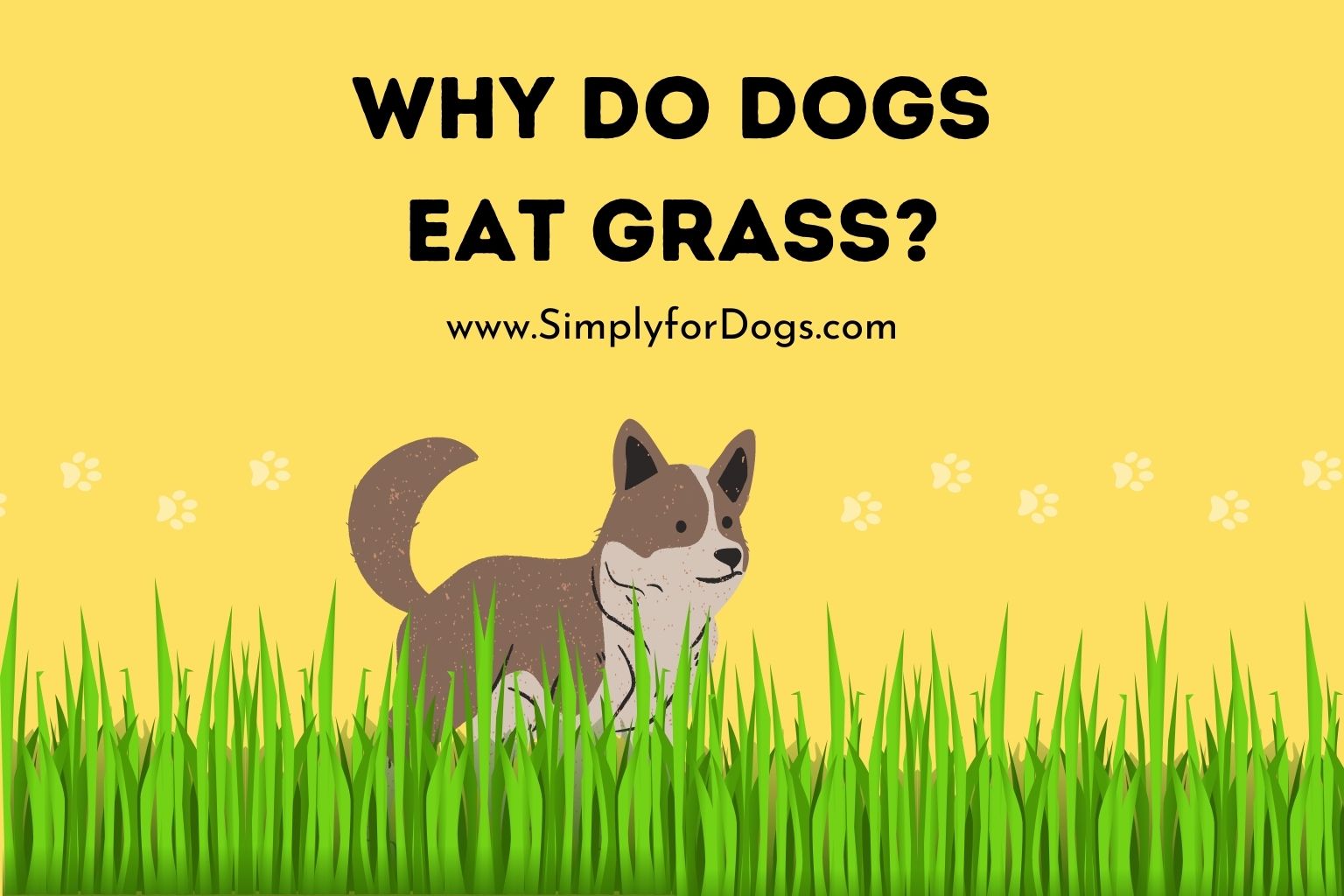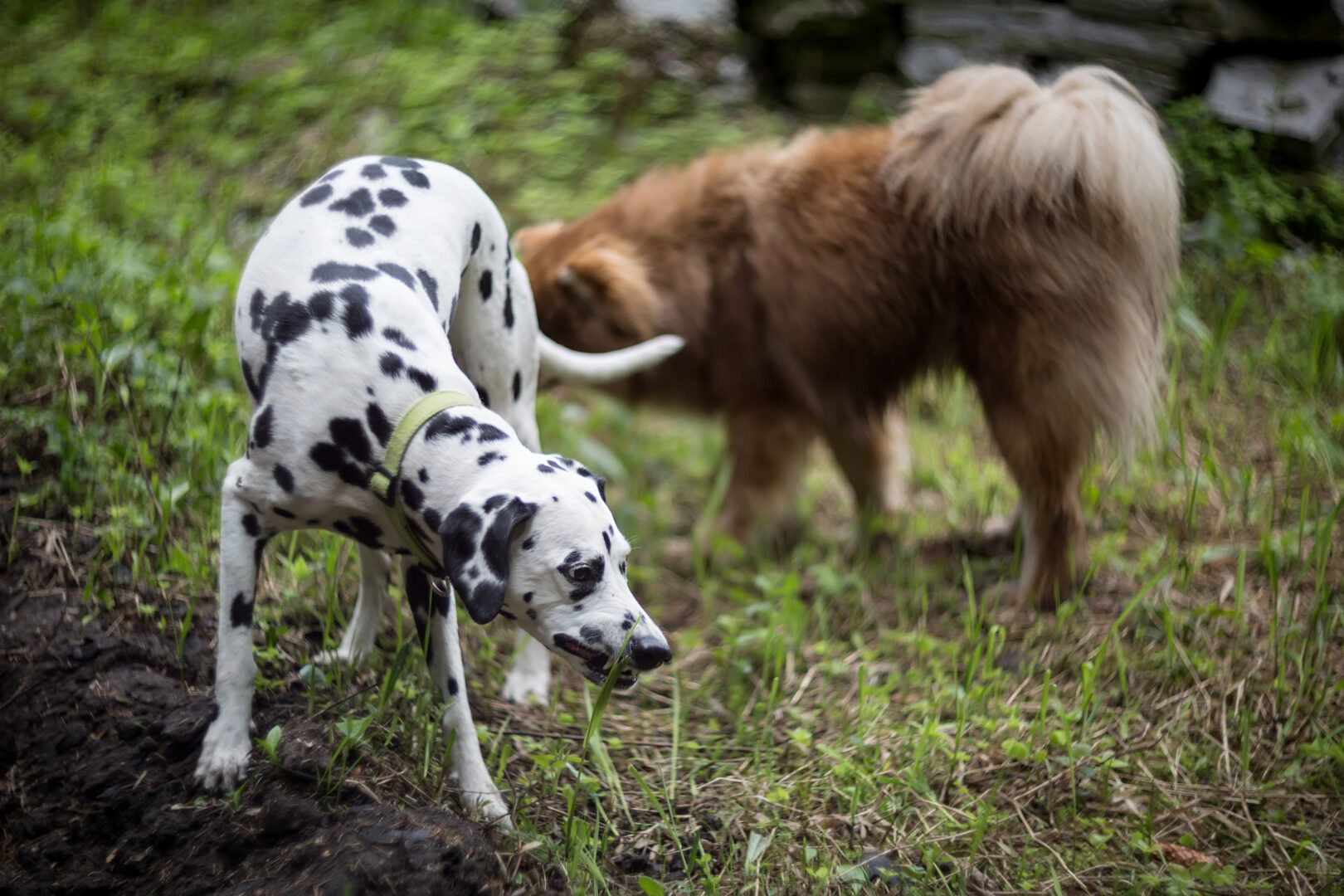When we think of our beloved barking besties, we don’t really picture them munching on grass. You can even see in different movies, series, and cartoon dogs chasing after a juicy slab of meat! I mean, who hasn’t noticed their dog waiting for them to drop that piece of chicken on the floor so that they can snatch it away?
This is why dog owners get confused when their pets eat grass and start wondering, why on earth would those canines go green! Such a question is actually way more common than you’d expect. However, as simple as this question is, the answer is far from definite.
The motives behind a dog wanting to eat grass have been of interest to scientists and vets for so long, and they’ve offered us lots of theories and reasons for this particular diet choice. Read ahead as we explore the possible explanations of our friends’ unusual behavior, how eating grass might affect their health, and whether or not you should be worried.
What You Should Understand First
First and foremost, you should know that your dog isn’t demonstrating unheard of or rare behavior – not even close! In fact, according to a 2008 study, 79% of 1571 dog owners reported that their pets eat grass on a daily or weekly basis. This definitely tells you that you’re not alone!
This grass-eating habit is included under a disorder called pica. Such a condition involves eating items that aren’t typically considered as food (hair and dirt, for instance), and carrying little to no nutritional value. We’ll be presenting you with various possible reasons as to why your dog eats grass.
Relief from Gastrointestinal Upset
A common presumption when it comes to dogs eating grass is that they do it when they feel ill or suffer from stomach upsets. Many dog owners notice their pets vomiting shortly after consuming grass – you may even have seen your own dog do it.
Sometimes dogs will whimper or whine to be let out, and then run outside and start munching on grass. It seems as though any kind will do, so apparently, dogs aren’t all that picky. Then, once the dog has had enough – and it could be a little or a lot – he throws it all up.
This may happen when your dog is nauseated or feeling bloated and is trying to ease the irritation. Another possibility is that your dog may suffer from intestinal worms. However, this whole scenario seems unlikely to be the major reason behind the grass eating habit, since studies show that only 22% of dogs vomit after eating grass. Moreover, less than 10% of dogs show signs of sickness before consuming grass.
Nutritional Needs
Another theory as to why dogs eat grass is that some grasses may contain nutrients that they need. Dogs do require a certain amount of fiber in their diet, and a lack of sufficient fiber negatively affects a dog’s ability to properly digest food and excrete stool. This can lead to constipation, so grass may actually be a desirable supplement to some commercial dog food diets. Other nutrients present in the grass are phytonutrients, potassium, and chlorophyll.
One published study tells the story of a miniature Poodle that ate grass and then vomited every day, keeping it up for seven years. The dog was placed on a high-fiber diet, and three days later, the owner reported that the dog stopped eating grass altogether.
Of course, you could be feeding your dog well and still find him gravitating towards the green stuff!
Psychological Issues
A reason often suggested by veterinarians is rooted in psychological issues, such as boredom or anxiety. A dog’s day revolves entirely around you, the owner. Your dog watches you leave, waits anxiously for your return, cares for you, and craves your attention.
If you’re not spending enough time interacting with your dog, he may feel neglected and start eating grass as an attempt to attract your attention. Alternatively, your dog may be doing it purely out of boredom in an effort to pass time when left alone for too long.
This type of munching that doesn’t induce any vomiting or negative effects is called grazing. Grazing may also be used by your dog as a comfort mechanism when he’s nervous. If this is the reason for your dog’s grass-eating habit, more quality time may work to reduce the grazing.
Instinct
As previously mentioned, eating grass is a common habit in dogs. Actually, this goes way back to their ancestors, who for thousands of years devoured practically anything and everything in their search for food. Early dogs were opportunistic scavengers that ate the meat, bones, and internal organs of their hunt, including the contents of their stomach (which undoubtedly contained plants and grass).
Despite what some people believe, dogs aren’t carnivores. They aren’t herbivores, either. They’re omnivores – they’ll eat whatever helps ensure a balanced diet including fruits, berries, and vegetable matter.
Of course, modern dogs don’t have to hunt down their food anymore, but that doesn’t mean they’ve lost their natural scavenging instinct. Dogs today may be eating grass as simply because their ancestors did so, and it’s hard-wired behavior.
Related Content:
Top Westie Food Recommendations
5 Reasons Your Dog Scarfs Harmful Foods and What to Do About It
5 Reasons You May Want to Consider a Limited Ingredient or a Homemade Diet for Your Dogs
They Like It
Yes, you read that right! If your dog nibbles at blades of grass and don’t appear nervous, it might simply be that he enjoys doing it. Maybe dogs just like the taste and texture of grass, and it’s no more complicated than that!
Is Grass Harmful To Dogs?
Ah yes, now we finally get to the million-dollar question! There’s nothing to suggest that eating grass poses any real danger to our beloved canine besties. There is no evidence supporting the idea of harmful side-effects from eating good, clean grass. Generally speaking, you can assume that grass is safe for canine consumption.
That being said, make sure that you know the condition of the grass your dog is eating. You don’t want him to eat something that has been treated with chemicals such as pesticides, fertilizers, and herbicides. Remember that public areas are frequently chemically treated, and you can’t always count on warning signs being posted. When in doubt, keep your dog off the grass.
It’s also worth noting that treated grass doesn’t actually have to be ingested for it to possibly harm your dog. He might also accidentally consume toxins if he licks his paws after walking on the grass, so if there’s any doubt as to the safety of your walking areas, give your dog’s paws a wash once you get home.
Should I Stop My Dog From Eating Grass?
By now, you know that there’s not much to worry about if your dog is eating grass. However, if consumption is excessive or out of the ordinary, you might want to intervene to stop or curtail the behavior. Here are some instances in which you should prevent your dog from eating grass:
- Your dog eats grass and then vomits it up every day.
- You take your dog out to public places with grass. We’ve already talked about pesticides and herbicides, but there’s also a good chance these grasses carry fecal residue from other dogs, which may transmit parasites like hookworms. These organisms can remain living in the tiniest traces of fecal waste residue, and if they enter your dog’s digestive tract, they will use him as host.
- You suspect that your lawn or garden has toxic plants. These plants can cause complications if your dog munches on them along with the grass. Check the Animal Poison Control Center website (ASPCA) for a list of both toxic and non-toxic plants.
How Do I Stop My Dog From Eating Grass?
It may be basically safe to let your dog consume grass, but it’s not exactly the most appropriate snack we can think of! So, if your dog’s green diet habit is becoming a concern to you, here are a few techniques you can try:
- Reevaluate your dog’s diet, as it may be the underlying cause of his behavior due to either a deficiency of certain nutrients or gastrointestinal upset. For example, if your dog has been eating a particular brand of food but he keeps getting out to eat grass and vomit, you might suspect that something’s not right.
Try switching to different brands offering various beneficial ingredients such as probiotics and digestive enzymes to get an idea of what works best with your dog. You can also switch to other flavors besides ones you typically buy or even swap protein sources. A true game-changer can be ditching kibble or canned food and going raw!
- Train your dog using suitable methods he’s most responsive to. If your dog responds to food treats, you can get pretty good results if you train him to stop eating grass in exchange for a delicious “upgrade.” Each time your dog bends down for a taste of grass, tell him to “leave it,” and then give him a treat and lead him away from the grass. You can also use verbal corrections and grant him a treat when he complies.
If your dog is more inclined to respond to affection, you can pretty much apply the same method, but petting and positive verbal reinforcement are the treats in this case. Any time your dog interrupts his grass-eating attempt when he hears you tell him to “leave it,” show him some love and encouragement as a reward.
In addition, teaching dogs the “heel” command is often effective in keeping them from eating grass. If your dog is fully trained to heel, as long as you’re moving he’ll stay by your side and not bend down to eat grass.
- If your dog is most likely to be eating grass out of boredom or lack of attention, engage him in routines involving more quality time and exercise.
How Do I Know If It’s Time To Visit The Vet?
Some extreme situations demand medical intervention, but this rarely happens unless the owner fails to notice his dog’s behavior for a long time, or the above methods fail to discourage the dog from continuing his habit. You should consider a visit to the vet if:
- Your dog’s grass-eating seems to be due to nervousness or anxiety. Your vet may recommend desensitization therapy, approved herbal remedies, non-traditional therapies, or prescription medication.
- Your dog uses grass to induce vomiting in an excessive manner. This may be an indication of an underlying condition that requires medical treatment. Moreover, repeated vomiting can cause damage to your dog’s internal organs as well as his teeth, so it’s best to get him checked out.
Your vet will perform a physical exam with blood and stool analysis to check for specific disease markers or blood traces.
Related Content:
Top Westie Food Recommendations
5 Reasons Your Dog Scarfs Harmful Foods and What to Do About It
5 Reasons You May Want to Consider a Limited Ingredient or a Homemade Diet for Your Dogs
Final Thoughts
The bottom line is simply that if your dog is eating grass, there could be a single reason, a combination of reasons, or no reason at all other than he thinks it’s fun. Since there are so many theories up for discussion, you should observe your dog’s behavior and come to your own conclusions. Compare your dog’s behavior to the behaviors in the foregoing material, and then you can decide whether you have cause for concern, or whether you can simply allow your dog to enjoy his green treat.
Finally, when in doubt, consult your veterinarian. After all, your dog’s health is your top priority.


